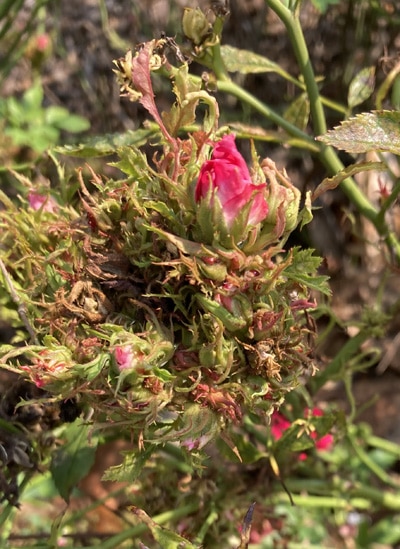The MGHC Hotline has been getting a number of questions about possible rose rosette infections.
Rose rosette disease (RRD) of roses is a fatal disease caused by the rose rosette virus (RRV). The virus is transmitted by the eriophyid mite, Phyllocoptes fructiphilus. RRD is spread when the mites release themselves from their host plant and are carried by the wind to other roses.
The image above show signs of RRD include: red stems, distorted flower, excessive thorns and witches broom. UT recommends removing the plants as soon as they exhibit any symptoms. The plants should be bagged and disposed of in the trash, not composted. For more information see: Early Detection of Rose Rosette Disease and Rose Diseases: Identification and Management
The only way to positively confirm the presence of RRD is by microscopic verification of the presence of Eriophyid mites. This can be done by sending a sample to the UT Soil, Pest and Disease Lab. Instructions and more information is at https://soillab.tennessee.edu/plant-pests/. You can also bring a sample to the extension office.


